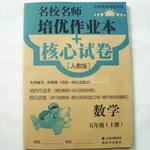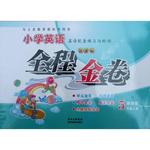题目内容
Jim was not ________ to the club, because at that time he was not a member of it.
- A.allowed
- B.permitted
- C.admitted
- D.promoted
解析:
句意是“吉姆没有被允许进入俱乐部,因为当时他还不是这家俱乐部的会员”。此句要用admitted构成短语be admitted to意为“被允许进入……”。

 名校名师培优作业本加核心试卷系列答案
名校名师培优作业本加核心试卷系列答案 全程金卷系列答案
全程金卷系列答案Mark Twain has been called the inventor of the American novel. And he surely deserves additional praise: the man who popularized the clever literary attack on racism.
I say clever because anti-slavery fiction had been the important part of the literature in the years before the Civil War. H. B. Stowe’s Uncle Tom’s Cabin is only the most famous example. These early stories dealt directly with slavery. With minor exceptions, Twain planted his attacks on slavery and prejudice into tales that were on the surface about something else entirely. He drew his readers into the argument by drawing them into the story.
Again and again, in the postwar years, Twain seemed forced to deal with the challenge of race. Consider the most controversial, at least today, of Twain’s novels, Adventures of Huckleberry Finn. Only a few books have been kicked off the shelves as often as Huckleberry Finn, Twain’s most widely read tale. Once upon a time, people hated the book because it struck them as rude. Twain himself wrote that those who banned the book considered the novel “trash and suitable only for the slums (贫民窟).” More recently the book has been attacked because of the character Jim, the escaped slave, and many occurences of the word nigger. (The term Nigger Jim, for which the novel is often severely criticized, never appears in it.)
But the attacks were and are silly—and miss the point. The novel is strongly anti-slavery. Jim’s search through the slave states for the family from whom he has been forcibly parted is heroic. As J. Chadwick has pointed out, the character of Jim was a first in American fiction—a recognition that the slave had two personalities, “the voice of survival within a white slave culture and the voice of the individual: Jim, the father and the man.”
There is much more. Twain’s mystery novel Pudd’nhead Wilson stood as a challenge to the racial beliefs of even many of the liberals of his day. Written at a time when the accepted wisdom held Negroes to be inferior (低等的) to whites, especially in intelligence, Twain’s tale centered in part around two babies switched at birth. A slave gave birth to her master’s baby and, for fear that the child should be sold South, switched him for the master’s baby by his wife. The slave’s lightskinned child was taken to be white and grew up with both the attitudes and the education of the slave-holding class. The master’s wife’s baby was taken for black and grew up with the attitudes and intonations of the slave.
The point was difficult to miss: nurture (养育), not nature, was the key to social status. The features of the black man that provided the stuff of prejudice—manner of speech, for example— were, to Twain, indicative of nothing other than the conditioning that slavery forced on its victims.
Twain’s racial tone was not perfect. One is left uneasy, for example, by the lengthy passage in his autobiography (自传) about how much he loved what were called “nigger shows” in his youth—mostly with white men performing in black-face—and his delight in getting his mother to laugh at them. Yet there is no reason to think Twain saw the shows as representing reality. His frequent attacks on slavery and prejudice suggest his keen awareness that they did not.
Was Twain a racist? Asking the question in the 21st century is as wise as asking the same of Lincoln. If we read the words and attitudes of the past through the “wisdom” of the considered moral judgments of the present, we will find nothing but error. Lincoln, who believed the black man the inferior of the white, fought and won a war to free him. And Twain, raised in a slave state, briefly a soldier, and inventor of Jim, may have done more to anger the nation over racial injustice and awaken its collective conscience than any other novelist in the past century.
【小题1】 How do Twain’s novels on slavery differ from Stowe’s?
| A.Twain was more willing to deal with racism. |
| B.Twain’s attack on racism was much less open. |
| C.Twain’s themes seemed to agree with plots. |
| D.Twain was openly concerned with racism. |
| A.target readers at the bottom |
| B.anti-slavery attitude |
| C.rather impolite language |
| D.frequent use of “nigger” |
| A.Jim’s search for his family was described in detail. |
| B.The slave’s voice was first heard in American novels. |
| C.Jim grew up into a man and a father in the white culture. |
| D.Twain suspected that the slaves were less intelligent. |
| A.slaves were forced to give up their babies to their masters |
| B.slaves’ babies could pick up slave-holders’ way of speaking |
| C.blacks’ social position was shaped by how they were brought up |
| D.blacks were born with certain features of prejudice |
| A.The attacks. | B.Slavery and prejudice. |
| C.White men. | D.The shows. |
| A.Twain had done more than his contemporary writers to attack racism. |
| B.Twain was an admirable figure comparable to Abraham Lincoln. |
| C.Twain’s works had been banned on unreasonable grounds. |
| D.Twain’s works should be read from a historical point of view. |
Jim was a farmer. He lived in a village far away from the town. One day he was very ill , and everyone thought he would die . But his family wouldn’t give up. They decided to sent for a doctor in town . The doctor arrived the village two days later and looked over the man. The doctor wanted a pen and some paper , But there was no pen or paper in the village , because nobody could read or write .
The doctor looked around and picked up a piece of burnt wood. Using the wood, he wrote the name of the medicine on the door of the house.“ Get the medicine for him right away, ” he said, “and he will soon get well.’ family and friends did not know what to do . They could not read the writing . Then the village baker had an idea . He took off the door of the house and took the door to the nearest town . He bought the medicine, and Jim was saved. After that Jim would not let anyone wash the magic words off the door .
1.People in the village thought James would die because ________ .
|
A.he was seriously ill |
B.the doctor could do nothing for him |
|
C.the doctor didn’t come |
D.they couldn’t find any doctor |
2. The doctor got to the village two days later because ________ .
|
A.he walked to the village |
|
B.the will age was far from the town |
|
C.there was something wrong with his car |
|
D.they couldn’t find any doctor |
3.When the doctor got to the village, he______.
|
A.found another doctor there |
|
B.gave some medicine to Jim |
|
C.looked over Jim carefully |
|
D.had no idea and could do nothing for Jim |
4.The doctor wrote down the name of the medicine with_____ on_____.
|
A.a pen; a piece of paper |
|
B.a piece of burnt wood; some paper |
|
C.a piece of burnt wood; the door of the house |
|
D.a pen; a piece of wood |
5.What do you think of the people in the village?
|
A.They were rich and clever. |
|
B.They were lazy. |
|
C.They could read and write well. |
|
D.They were poor and fell behind the times. |
 son would 36 him on the farm, enable it to expand, and eventually take it 37 . But Henry proved a 38 . He hated farm work and did everything he could to 39 it. It was not that he was lazy. 40 from it! Give him a mechanical job to do, from mending a gate to sharpening tools, 41 he would set to work eagerly. It was the daily life of the farm, with its dull tasks, 42 upset him.
son would 36 him on the farm, enable it to expand, and eventually take it 37 . But Henry proved a 38 . He hated farm work and did everything he could to 39 it. It was not that he was lazy. 40 from it! Give him a mechanical job to do, from mending a gate to sharpening tools, 41 he would set to work eagerly. It was the daily life of the farm, with its dull tasks, 42 upset him. Henry was excited by the development in technology that could __43 farmers like his father from wasteful and 44 labor. But these developments, in Henry’s boyhood, had touched farming 45 at all and farmers went on doing things in the way they had always done. So Henry 46 his attention elsewhere. When he was twelve, he became 47 in clocks and watches. Soon he was repairing them for friends, working at a bench he built in his bedroom.
Henry was excited by the development in technology that could __43 farmers like his father from wasteful and 44 labor. But these developments, in Henry’s boyhood, had touched farming 45 at all and farmers went on doing things in the way they had always done. So Henry 46 his attention elsewhere. When he was twelve, he became 47 in clocks and watches. Soon he was repairing them for friends, working at a bench he built in his bedroom.  and watches as objects of Henry’s fascination. Making and installing them was the business of the Detroit workshop that he joined at the age of sixteen.
and watches as objects of Henry’s fascination. Making and installing them was the business of the Detroit workshop that he joined at the age of sixteen. A. learn B. find C. Work D. join
A. learn B. find C. Work D. join